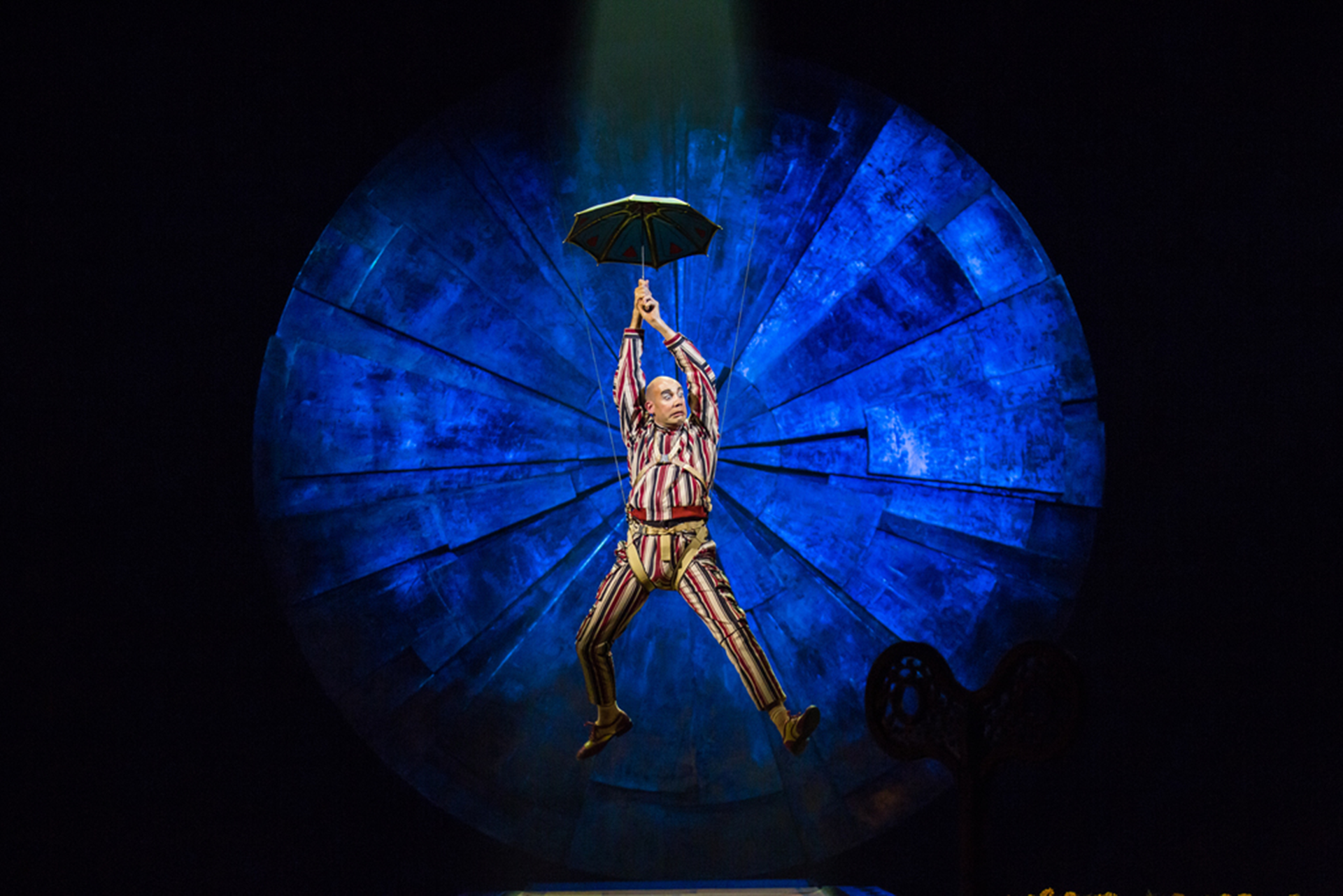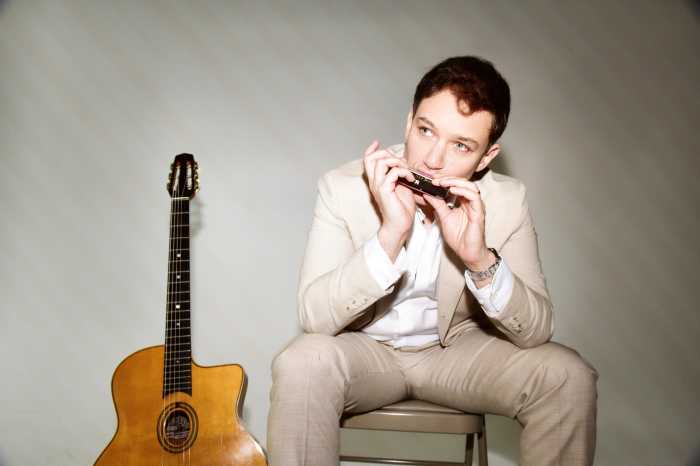Cirque’s ‘Luzia’ Liberates

Talking about Mexico, and building the wall, Cirque du Soleil’s new show, “Luzia (A Waking Dream of Mexico)” at Citifield, suggests, intentionally or not, many ways to get around it. At the opening of the show, a clown (Fool Koller) parachutes from the sky, and humans dressed as birds, with tall yellow boots, gather. After all, things that fly observe no walls.
What a celebration of flight — of freedom of movement, and the freedom to move in every way! The energy on the stage is enthralling, liberating us from the boundaries and borders that we experience in the real world. Enter the freefall into the world of imagination.
Throbbing with life and excitement, the music by Simon Carpentier is also exquisite. Piercing brass, Spanish guitars, castanets, accordions, even a whistle plays notes one could hardly have imagined. A solo singer, Majo Cornejo, brings us dramatic and lyrical songs with a Latin slant.
Cirque du Soleil always boasts a fantastic array of ethnically and culturally diverse performers, and such is the case here. But this production, created and directed by Daniele Finzi Pasca with Brigitte Poupart, transcends those sheer feats of awesome physicality. Here, we are consumed by the fluidity of their storytelling, as we travel with them through time and space. “Luzia” is all about movement.
An enormous silver horse is accompanied by a woman running on foot (Shelli Epstein), until she turns into a butterfly. And there is a jaw-dropping act with two facing swings, and acrobats that fling themselves more than 30 feet into the air before landing on the next swing.
Arriving with the handle bars of a bicycle, Koller, our traveler, mimes biking to the beach. Discovering a beach ball, he throws it into the audience, drawing us into a game of catch. And those who stroll around the action — cacti with succulent blossoms, cockroach puppets, and performers with huge fish heads — place us on this journey amidst all of nature’s elements.
Uppermost among them is water. Torrential sheets of rain pour down; an aerial artist (Stephen Brine), swinging from a strap, whips his hair back and forth through a pool of water; and two women (Rosa Tyyska and Nora Zoller) splayed within majestic hula-hoops culminate their dance in the rain. The symbolism of life, rebirth, of washing away sin is at the center of this journey.
Its extraordinary design elements make it an inspiring show, one older offspring should take their parents to see.
All My Sons
Directed by the luminous Jack O’Brien, this current revival of “All My Sons” by the Roundabout Theatre is true to Arthur Miller’s realistic style. After all, a great American drama deserves its rich roots.
Tracy Letts is well-cast here, as the award-winning playwright/actor is from the Midwest, where the play is set. Portraying the family patriarch, Joe Keller, the proprietor of a well-established manufacturing company, he grounds this production. A man who discovered prosperity building bombs for the army in WWII, he is admittedly a man of no education.
In many ways, Keller is another version of Miller’s quintessential anti-hero, Willy Loman in “Death of A Salesman,” but, unlike Willy, Joe has achieved the American dream. Successful and wealthy, he remains a banal man, reading the help wanted ads in the Sunday newspaper, chatting with neighbors, and his son. He seems as unruffled by the storm that tore up the yard last night, as he was by the war. He’s so ordinary, in fact, that he seems to just slug along. It’s a brilliant, understated portrayal of a man whose life is as unfulfilled, and whose ending is as tragic, as Loman’s.
As played by Annette Bening, Kate, his wife, is a web of nerves and hypersensitivity. She can barely contain herself when a bag of potatoes goes missing. The contrast between them creates the frictional environment, and the sense of disbelief that anything could be so wrong.
The ensemble of neighbors, trying to overlook the demise of self-respect and honor in their community, are all beautifully played. As the ex-fiancé of the Keller’s oldest son — the one who was killed in the war — Francesca Carpanini gives a grounded, informed performance. And Hampton Fluker as her brother arrives shrouded in pathos and shame at the Kellers’ sordid contentment.
Ultimately, however, the challenge to the Keller family’s position lies within. As their surviving son, Chris, Benjamin Walker delivers a highly insightful and nuanced performance. Early in the play, reading The New York Times in the yard, he puts the paper down, talking casually about something to his father. But, in the midst of their shared commonality, he suddenly comments, “Shaw was an elephant.”
We gather he’s been reading the book review section. It’s 1947, and the article might even be about Arthur Miller’s new play. Decidedly, in this one, as delicately revived here, the playwright is none too subtle. In “All My Sons,” the contempt for corporate corruption, and for the ruthlessness and greed that drives men’s lives, is a brave message.
It’s a relentless story, revealing once again the callousness of the American Dream.









